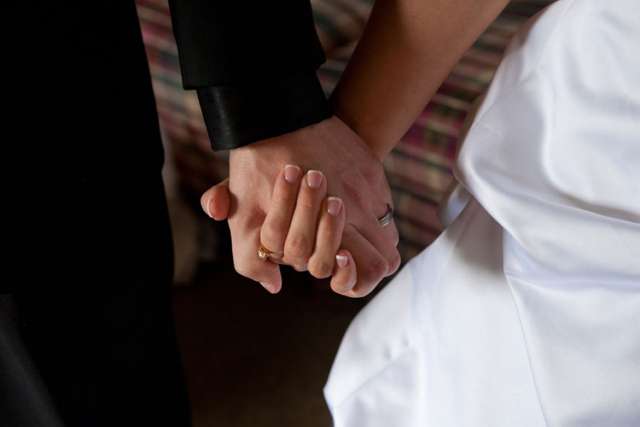A new Pew Research survey chiefly focused on political polarization also found Americans divided when someone in the family picks a nonbeliever to marry.
Atheists are the most unwanted future relative, by far. Nearly half (49 per cent) of Americans say they would be unhappy if a member of their immediate family picked an unbeliever for a spouse.
Those most likely to say they’d be upset:
* 73 per cent of people who call themselves “consistently conservative.”
* 64 per cent of Protestants, including 77 per cent of white non-Hispanic evangelical Protestants.
* 59 per cent among Republicans or those who leaned to the GOP, 18 points higher than unhappy Democrat or Democrat/leaning adults.
* 55 per cent of Roman Catholics
By contrast, only nine per cent overall said they would be upset by the prospect of a relative wedding a “born again” Christian.
Marriages between Democrats and Republicans were not nearly as divisive. The number of people who would be upset if a family member married someone of another political party was less than one in 10 overall. And the percentage was similarly low for marrying someone of another race or an immigrant born and raised in another country.
“Clearly, an atheist is the least likely to be welcomed into a family,” said Jocelyn Kiley, senior researcher with the Pew Centre for the People & the Press. Although 20 per cent of Americans said they have no religious identity, “certainly religiosity matters in the United States.”
The questions were part of a comprehensive look at polarization in U.S. society. The overall survey, conducted from January through March 2014, was of 10,013 people, but only about a third were asked the marriage questions. The margin of error for that portion of the survey is plus or minus two percentage points.
This is the first time Pew asked these particular marriage questions so there’s no comparison to the past.


